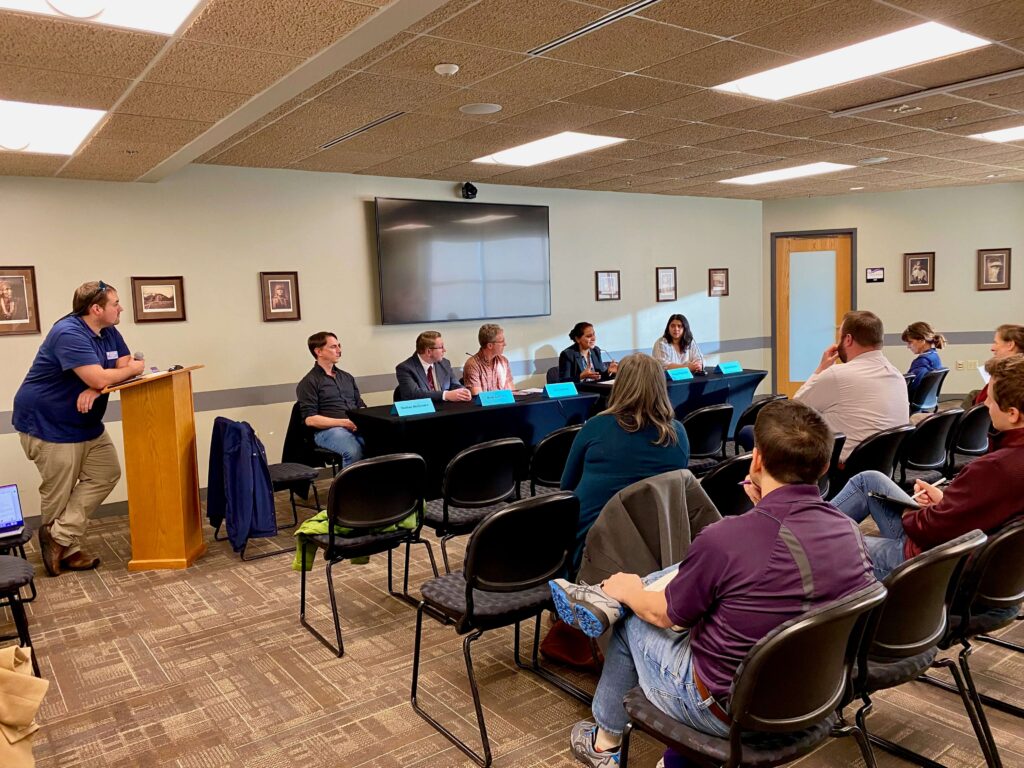The LTC, LEARN Center, and Office of Academic Assessment would like to invite you to save the date for the Celebrating Teaching and Learning (CTL) Conference on May 15th, 2024! The conference will be held in person at the University Center. It is open to all University of Wisconsin – Whitewater staff. More information about registration, the call for presentation proposals, and applications for the Cisco/Presidio Teaching with Technology Honorarium will be coming soon! We look forward to our campus community coming together to share ideas, collaborate on common challenges, and build camaraderie! If you have any questions about this conference, please contact the Learning Technology Center.
Category Archives: Trainings & Workshops
Join the Exploration: Understanding the 2023 Educause Horizon Report
This spring, join the LTC and LEARN Center in a dynamic exploration of the 2023 Educause Horizon Report “Teaching and Learning” Edition! The report discusses the emerging trends, key technologies, and innovative practices set to redefine the student experience and our collective future in higher education.
In an era where generative AI and other technological advancements are revolutionizing content creation, communication, and learning, the higher education sector buzzes with new possibilities, but equal challenges. These developments prompt vital questions about the responsible use of technology and its potential overreach.
Our unique “book-club-inspired” Explorers Group invites you to delve deep into these issues. Engage with fellow inquisitive members of the UW-Whitewater community, including educators, leaders, administrators, and technologists. Together, we’ll explore how the insights from the Horizon Report resonate with our experiences both inside and outside the classroom, and potential ways to prepare for the challenges it highlights.
Meeting semi-weekly, our group will focus on the essential theme of our shared humanity. We will tackle how to meet the diverse needs of our students in the face of powerful technological shifts and the growing necessity for human-centered approaches in education. Your participation will enrich our discussions on building institutional communities that prioritize student well-being and a sense of belonging.
As we conclude our sessions, we’ll reflect on the implications for educational institutions. How can we effectively prepare for the future outlined in the report? Our goal is to derive actionable insights that can significantly influence our professional paths. We’ll ponder crucial questions: What actions should we take now? What strategies should we develop for the future?
Don’t miss this opportunity to contribute to a vital conversation about the evolving landscape of higher education and its impact on our roles and responsibilities!
Excursion Dates and Time
Various Thursdays, 3:00 pm – 4:00 pm – McGraw 19A or Hybrid via Webex
Please register individually for the session(s) you can attend.
| Date | Topic | |
| February 8th | Intro and Trends: Scanning the Horizon – What is the Educause Horizon Report? | Register! |
| February 22nd | Key Technologies and Practices: AI and Impacts on Teaching and Learning | Register! |
| March 7th | Key Technologies and Practices: Modality Blurring and Implications | Register! |
| March 14th | Key Technologies and Practices: Micro-credentials, Student Belonging, and Connectedness | Register! |
| March 21st | Scenarios | Register! |
| April 4th | Implications and Recommendations: What do we do now? What plans do we recommend? | Register! |
Navigating AI: Panel Discussion Summary and Key Insights
On November 15th, the LTC and LEARN Center hosted a panel discussion bringing together campus community members with different levels of generative AI experience across diverse academic backgrounds to discuss the burgeoning role of AI in academia. Here are five key takeaways that emerged from the dialogue:
- A Multifaceted Tool: AI is not just a buzzword; it is a versatile tool. From assisting in graduate research to finding its place in social media, AI’s applications are as varied as they are impactful. It’s redefining fields like geography through GIS, enhancing audio/video production, and offering new perspectives in humanities.
- Upholding Academic Integrity: In an AI-enhanced education landscape, the emphasis remains on academic integrity and critical thinking. It’s imperative that students and educators understand how to use AI ethically, ensuring it complements rather than compromises the learning process.
- Balancing Benefits and Challenges: While AI brings efficiency to tasks such as literature reviews, it also poses challenges, particularly in the realm of misinformation. The panel underscored the importance of using generative AI judiciously, especially in sensitive areas like election information.
- Reshaping Education and Skills: AI’s influence extends to teaching methodologies and the skills needed in the modern workforce. The conversation touched on the need for adaptive learning strategies to bridge the digital divide, adhere to ethical standards, and prepare students for an AI-driven future.
- Institutional Responsibility and Ethical AI: Finally, the panel urged UWW to lead in integrating generative AI into academia responsibly. This involves safeguarding student privacy, ensuring equitable access to generative AI resources, and fostering an environment where ethical use of generative AI is standard practice.
As we continue to explore the vast potential of AI, these insights from our expert panel offer a roadmap for integrating AI into our academic practices. The LTC and LEARN Center are committed to embracing this technological wave with responsibility and foresight, ensuring that our faculty, staff, and students are well-equipped for the challenges and opportunities of an AI-influenced world. Questions or suggestions? Email the LTC!
Miss the discussion? Catch the recording here.
Awareness and Detection of AI Workshop – Encore with Updates!

Navigate Generative AI with Confidence Before Finals Week!
The advent of generative AI has reshaped the educational landscape, merging the once-clear boundaries between student-crafted assignments and machine-generated content. In this new era, an educator’s role transcends imparting knowledge—it now includes mastering the intricacies of these sophisticated tools. Recognizing this essential need, the Learning and Teaching Center (LTC) cordially invites you to an encore presentation of, “Awareness and Detection of AI”, just in time for finals week! This workshop will equip you with the skills to discern between student ingenuity and generative AI’s craftiness while also fostering a culture of transparency and informed use of generative AI in coursework.
What Will Be Covered:
- Insights into the detection capabilities and limitations of generative AI in education and how to leverage campus supported tools
- Strategies for setting clear guidelines on generative AI use in student work
- Constructive approaches to encourage students to use generative AI as a learning aid, not a shortcut
Workshop Details:
- Date: November 29th, 2023
- Time: 3:15 to 4:30 p.m.
- Location: McGraw 19a or via Webex
Unable to Attend?: Learn from our past session how to adeptly navigate the academic challenges posed by AI. Click this link for a recap. And continue to check the LTC blog for updates!
Campus Wide AI Panel November 15th – Register Now!
Navigating AI: Panel Discussion on Implications for Higher Education
The world around us is changing, and so is the landscape of education! The Learning Technology Center (LTC) and the LEARN Center are thrilled to extend an invitation to all Warhawks to be part of an engaging discussion on the transformative power of generative Artificial Intelligence (AI) in higher education.
Event Details
Date: November 15th, 2023
Time: 3:00 PM – 4:30 PM
Location: Hybrid Event – UC 261 or Virtually via Webex
Participants: Open to All on Campus!
Why Attend?
Generative AI is not just a buzzword; it is a revolutionary force in the educational sector. Whether you are a tech enthusiast, a forward-thinking educator, or a student navigating through the waves of digital transformation, this panel discussion is tailor-made for you!
- Learn from the Experts: Engage with a dynamic panel of instructors and students who are already navigating the world of generative AI. Gain insights into how AI is reshaping classroom interactions, uncover potential applications and disruptions, and peek into the future of education.
- Direct Engagement: Ever had a question about AI but did not know who to ask? Our Open Q&A Forum is your chance! Interact directly with the panelists, get your questions answered, and dive deeper into the world of AI.
- Networking Opportunities: Connect, converse, and network with like-minded individuals who share your curiosity, caution, or passion for AI and education.
Be Part of the Conversation
Ready to be part of the conversation? Click the link below to register and secure your spot, whether in person or virtually.
Spread the Word
The LTC and LEARN Center cannot wait to welcome you to an afternoon filled with insightful discussions, engaging interactions, and a deep dive into the future of AI in education.
RSVP today and invite your friends and colleagues. Let’s explore the transformative world of generative AI together!
Use Cases and Opportunities for AI Workshop Summary
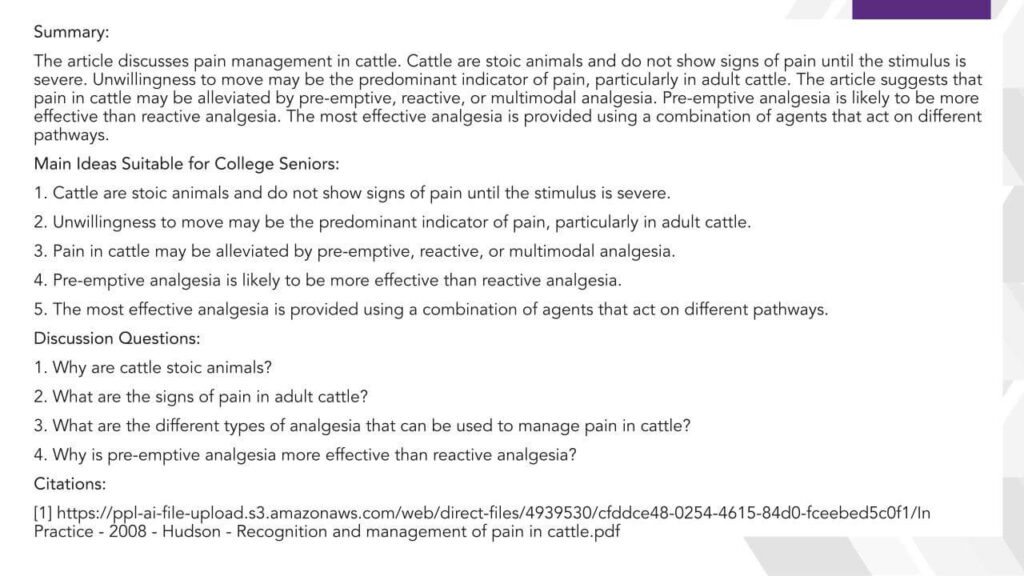
On behalf of the LTC, thank you to all the participants of our Use Cases and Opportunities for AI! If you were unable to attend the session, a summary is below:
Key Takeaways:
- Generative AI has numerous applications across higher education; a small excerpt of examples includes summarizing texts, creating study guides, providing personalized tutoring, and generating student feedback.
- Prompts are but a starting point. Be as specific as possible in your query and customize it as needed to suit your objective. Modify and iterate!
- Optimal utilization of generative AI involves hands-on exploration. Given the highly individualized nature of job requirements and responsibilities, you are in the best position to discern how AI can be effectively harnessed for your specific role.
Supplemental Resources:
- Presentation Slide Deck
- Workshop Recording
- AI for Education – Prompt Library
- Ethan Mollick on Encoding Human Expertise
Save the Date! The LTC is hosting “Navigating AI: Panel Discussion on Implications for Higher Education” on November 15th at 3pm – more information available here.
Ethics and Limitations of AI Workshop Summary
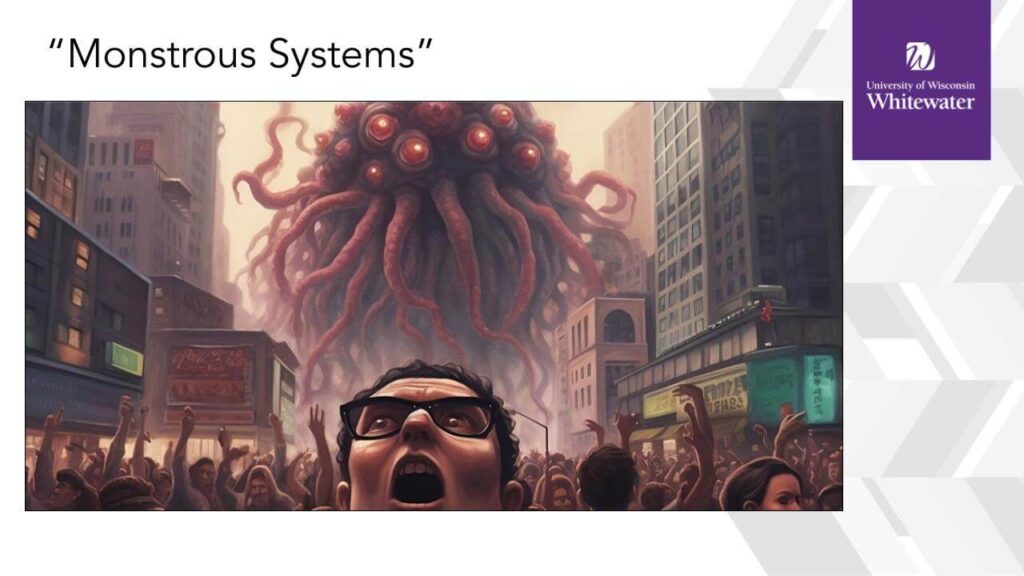
Thank you to all the attendees of our workshop, “Ethics and Limitations of AI”! If you were unable to attend, we have provided a summary below:
Key Takeaways:
- Responsible generative AI literacy inside and out of the classroom includes a consideration of the ethical concerns. With a rush of generative AI platforms’ products, companies are looking to monetize, with minor regard for public privacy, safety, or access.
- “Degenerative” AI is a real problem. In a world where volumes of content can be produced in seconds, it will be difficult to discern human-creation from AI-creation, and with it, a loss of the creative process. An implicit underlying thesis of generative AI is that one can only derive enjoyment from the consumption of content, not the production.
- Federal legislative action has slowly begun; both the White House and Congress have begun work on guardrails for the responsible development of AI, with a primary focus on safety, security and trust.
- The majority of ethical concerns surrounding AI can be categorized into a four part framework: privacy, equity, transparency, and accountability.
Supplemental Resources:
Save the Date! The LTC is hosting “Navigating AI: Panel Discussion on Implications for Higher Education” on November 15th at 3pm – open to all! – more information available here.
Incorporating AI into Assessments Workshop Summary
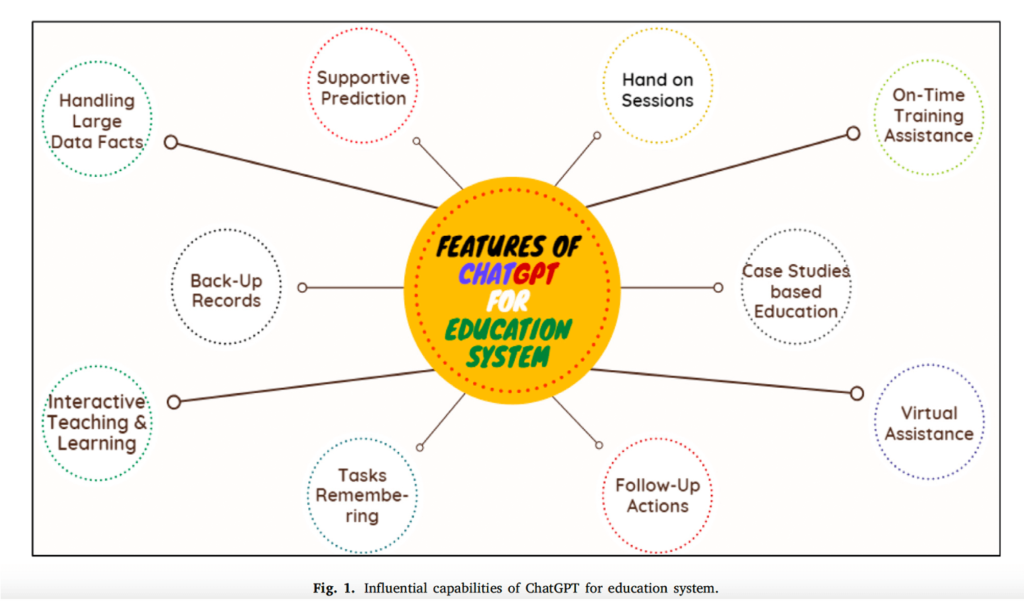
The LTC would like to thank all the attendees of our Incorporating AI in Assessments workshops! In case you were unable to attend our sessions, we have provided a summary below:
Key Takeaways:
- Utilizing AI in building assessments can save time and effort, allowing instructors to focus on other aspects of teaching and learning.
- Use AI to generate a wide range of responses based on different prompts and criteria, allowing instructors to test potential responses or create more varied and engaging assessments that can be tailored to the needs of individual students.
- AI can identify patterns, themes, and other characteristics in students’ writing that can provide insights into their writing style, language proficiency, and overall academic performance.
- Instructors can customize assignments through AI by including learning objectives, creating a rubric, providing resources, and reviewing and revising the assignment.
- Harness the creativity of AI – try it for discussion topics, essay topics, and quiz prompts that are personalized to students’ interests and backgrounds.
Supplemental Resources
Additional LTC Workshops
Use Cases and Opportunities for AI
- Wednesday, October 18; 3:15 pm – 4:30 pm McGraw 19A / Hybrid
- Wednesday, October 25; 3:15 pm – 4:30 pm McGraw 19A / Hybrid
For full descriptions of each workshop, please visit our previous post.
Navigating AI: Panel Discussion on Implications for Higher Education
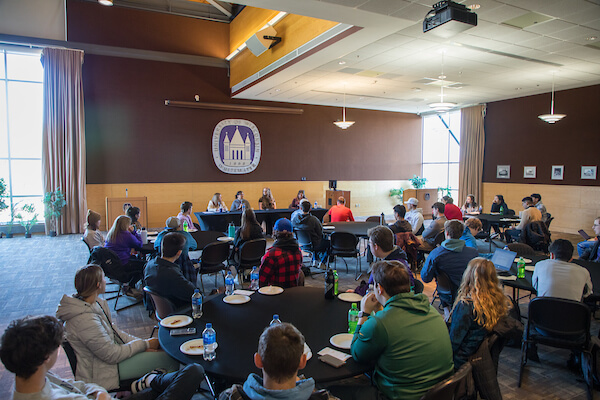
The LTC and LEARN Center excitedly invite all members of the campus community to a stimulating and meaningful panel discussion on the ever-evolving world of generative Artificial Intelligence (AI). This event is an opportunity for networking, learning, and gaining a deeper understanding of generative AI’s role in our rapidly changing world. Whether you are a student interested in AI’s capabilities, a faculty member exploring its pedagogical potential, or simply curious, this panel discussion is for all!
Date: November 15th, 2023
Time: 3:00 PM – 4:30 PM
Location: Hybrid: University Center Room 261, Whitewater Campus or Webex
Participants: Open to Campus!
Event Highlights:
Instructor and Student Panel (60 minutes):
- Hear a panel of instructors and students discuss their experiences and perspectives on generative AI, with a focus on how it has impacted their interactions in the classroom, potential applications and disruptions, and implications for the future of education.
Open Q&A Forum (30 minutes):
- An interactive discussion where you can ask your burning questions to our panelists. Don’t miss this opportunity to engage directly with AI experts and enthusiasts!
Mark your calendars and join us for an enlightening afternoon! The LTC and LEARN Center look forward to welcoming you to this enriching event! Registration and Webex information here!
AI Awareness and Detection Workshop Summary
Thank you for attending our AI Detection and Awareness workshops! We now offer a Turnitin AI detection tool for all campus instructors. Please note that while other options exist, our support will be focused on Turnitin.
Key Takeaways
Clearly Define AI Use for Your Students
- It’s essential to communicate your expectations regarding AI usage with your students.
- Recognize that the definition of “cheating” can vary among instructors and courses.
- Consider AI as a potential educational resource rather than a threat. For example, consider using AI as a possible tutor or study aid.
- Make sure to incorporate accessible AI policies within your syllabus.
Adapting Assignments for an AI-Integrated Environment
- Encourage students to reflect personally as they interact with AI tools.
- Request students to provide documentary artifacts such as outlines, rough drafts, and bibliographies as part of their assignments.
Utilizing Turnitin in Canvas for AI Writing Detection
- Turnitin, integrated into Canvas, offers a comprehensive AI Writing Detection feature.
- Emphasize that all submissions through Turnitin undergo thorough AI content scanning.
- To access the AI indicator, refer to the Similarity Report (Instructions on how to find the Similarity Report can be found here):
- The AI indicator is not visible to students.
- AI detection only works well with lengthy prose.
- It may not provide reliable results for bullet points, brief responses, short essays, or poetry.
- Currently, AI detection exclusively supports English text.
- Remember that AI detection scores are not absolute; any concerning findings should be discussed with students.
AI Detection Technology Progress
- Be aware that AI detection technology continually advances to catch up with generative models.
- Follow the LTC Blog for updates!
Supplemental Resources:
- Presentation Slide Deck
- Recording of the Second Session
- UWW AI Syllabus Language Resource
- UWS Chapter 14 – Student Academic Disciplinary Procedures
11/6/23 Update
UW-System OPID Webinar Series: Safeguarding Our Students, Instructors, and Universities: Privacy, Security, Copyright, and Generative AI
As generative AI expands in capabilities, questions surrounding personal privacy, copyright, and intellectual property have risen in the academic community. The University of Wisconsin System recently hosted a panel discussion bringing together three system experts to discuss these issues. Timestamps from the webinar that discuss the highlighted points are included in parentheses.
Key Takeaways:
- The best approach to generative AI use in the classroom is communication of expectations. A syllabus policy that clearly describes appropriate use, if permitted, will increase responsible integration and decrease confusion. (17:12, 37:52)
- Homework or other assignments, once completed and submitted to an instructor for credit or grading, is protected under FERPA. In the context of using open source generative AI detectors, instructors should be cautious of submitting student work where privacy violations may occur. Students should be given an opportunity to consent to their work being submitted to public detection software. (14:10, 17:55)
- UW System is currently working to understand how generative AI intersects with our current practices and tools. They are working on reviewing policies, creating a guidance document, and researching potential enterprise solutions. (39:05)
- Instructors can require students to sign up for accounts with ChatGPT. (7:51)
Additional LTC Workshops
Incorporating AI into your Assessments
- Wednesday, September 27; 3:15 pm – 4:30 pm McGraw 19A / Hybrid
- Friday, October 13; 10:15 am – 11:30 am McGraw 19A / Hybrid
Use Cases and Opportunities for AI
- Wednesday, October 18; 3:15 pm – 4:30 pm McGraw 19A / Hybrid
- Wednesday, October 25; 3:15 pm – 4:30 pm McGraw 19A / Hybrid
For full descriptions of each workshop, please visit our previous post.


